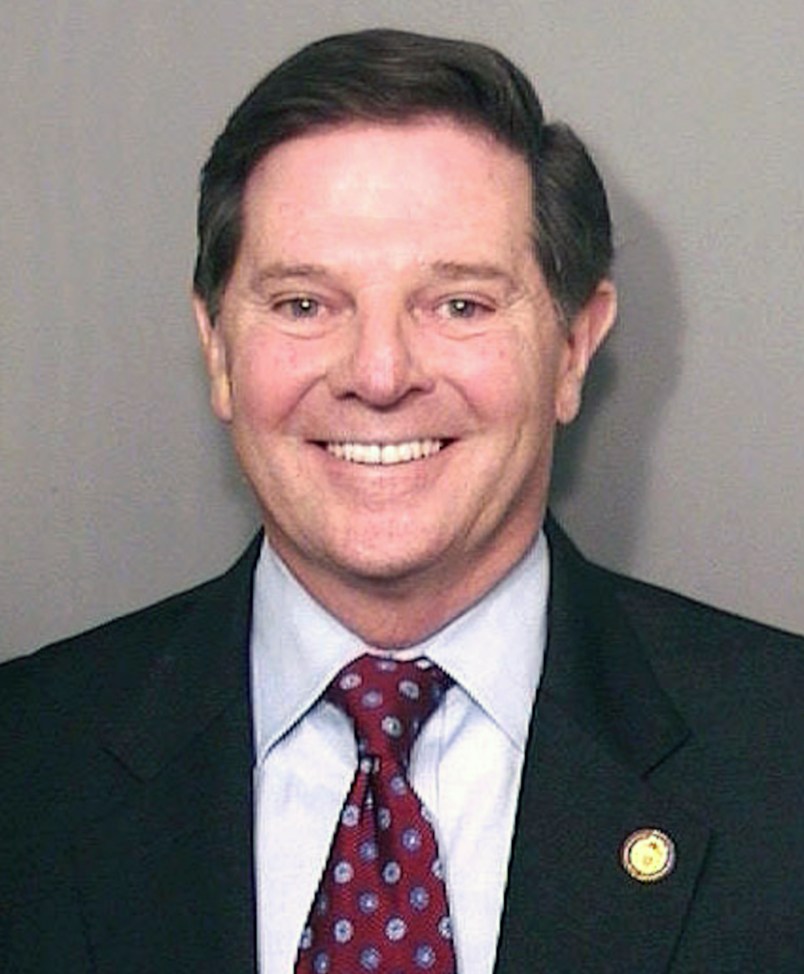With Texas Democrats refusing to attend a state legislative session in an effort to block the state’s election crackdown law it reminded TPM Reader MR of a similar instance 18 years ago. It was a story I covered closely at TPM, and MR dropped me a note this morning reminding me. It’s more than just a trip down memory lane. What happened in 2003 in Texas was a preview, prologue to almost everything that would happen over the subsequent two decades. It presaged the debt ceiling hostage taking; it presaged Merrick Garland; and it presaged Donald Trump.
As we know from looking forward to the 2022 midterm, once a decade there’s a federal Census, a reapportionment of congressional seats and redistricting in every state that has more than one representative. It happened in 2010, setting the ground work for Republicans storming back into the majority in the House. Democrats rightly fear something similar will happen next year.
But there’s no actual rule that says you can only redistrict once a decade. There’s no law or constitutional impediment to remapping the districts for each election. The tradition originates from the fact that especially early in the country’s history states added and sometimes lost seats very often. Adding or losing seats forces at least some redistricting. Demography also changes over a decade. So even if a state has the same number of seats it makes sense to review the maps.
The logic of not doing it more than once a decade is first that if you’re constantly doing it it creates a lot of instability for everyone. Incumbents can gain from redistricting. But it’s a danger too. The other reason not to do it more than once a decade is that there’s really no conceivable reason to do it other than maximizing the power of the party which controls redistricting in the state. Gerrymandering or maximizing advantage almost always play a role. But once a decade there’s at least a rationale if not always a pressing need for doing so which isn’t tied to partisan advantage. In any case, that’s the rule and everyone’s lived by it for centuries.
Texas is such a Republican state today that it’s easy to forget that quite recently conservative Democrats were a key force in the state, especially in the state legislature. Republicans worked really hard to control the state legislature in time for the 2000-2002 redistricting cycle. But they failed. So when they finally did get the majority in 2003 they decided there was no need to wait until 2010. They just went ahead and did a partisan gerrymander way ahead of schedule.
Done and done.
Democrats were predictably outraged. (They eventually absconded to New Mexico to block the move.) Journalists and commentators were surprised, flummoxed, caught off guard. Pick your verb. This just doesn’t happen. You can’t do that. It just disrupts the system of how everything works. But of course, you can do it. There’s no actual law saying you can’t.
Majority Leader Tom DeLay (R-TX) was the mover behind the whole effort, even though he wasn’t in the state legislature. DeLay was an early progenitor of the ascendent Republican view that all there is is power. If it’s not expressly illegal you can do it and you should do it. Indeed, you must do it. It was the principle that there are no restraints on Republican political power short of criminal statutes, and often not even those. (DeLay was at the time fighting off a long running political corruption case that would eventually drive him out of Congress.) It’s the same principle that had Ted Cruz threatening to force a default on the national debt if Barack Obama won’t give in to his demands. It’s the same principle that leads Mitch McConnell to hold open a Supreme Court seat for a year to secure a corrupt appointment under Donald Trump.
The signs were all there years in advance. And it just grew.

 Members-Only Article
Members-Only Article

